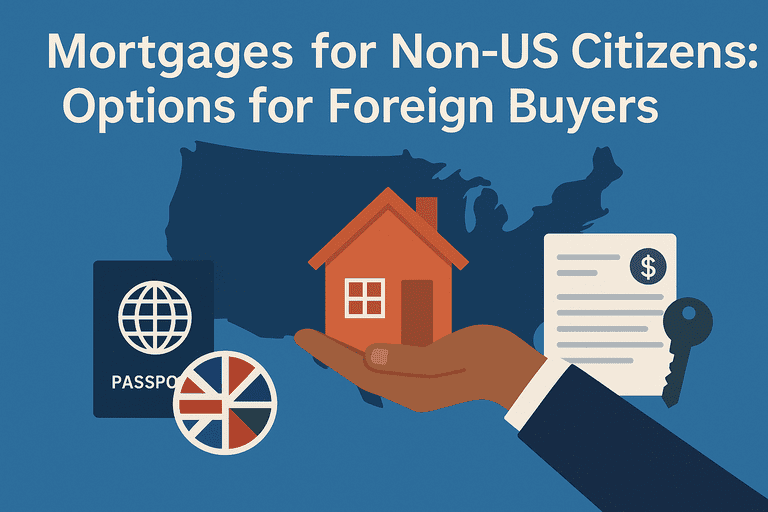Purchasing property in the United States as a non-US citizen can be complicated, but it’s entirely possible with the right mortgage options. Foreign buyers often face unique challenges, such as stricter lending requirements, higher down payments, and documentation hurdles. Fortunately, various foreign buyer mortgage programs, non-resident home loans, and international mortgage solutions are designed to help non-US residents invest in U.S. real estate confidently.
This article explores these options, explains eligibility requirements, and offers practical tips for securing financing as an international buyer.
Understanding Foreign Buyer Mortgages
A foreign buyer mortgage is a loan specifically tailored for non-US residents who want to purchase property in the United States. Lenders may have stricter criteria for these borrowers, including:
Larger down payments (typically 20–50%)
Higher interest rates than domestic borrowers
Verification of income, assets, and creditworthiness from international sources
Despite these hurdles, a foreign buyer mortgage allows international investors, expatriates, and temporary residents to access U.S. real estate markets without needing U.S. citizenship.
Non-Resident Home Loans
For those who live abroad but wish to own U.S. property, a non-resident home loan provides the solution. Lenders often require:
Valid passport and visa or work permit
Proof of income and employment abroad
Bank statements from international accounts
Higher reserves to cover mortgage payments in case of currency fluctuations
Non-resident loans are available for primary residences, vacation homes, and investment properties, though investment property requirements can be more stringent.
International Mortgage Programs
Some U.S. lenders offer international mortgage programs specifically for foreign buyers. These programs may include:
Foreign national loans with minimal U.S. credit history requirements
Portfolio loans underwritten directly by the lender instead of conforming to Fannie Mae or Freddie Mac guidelines
Multi-property financing for investors looking to build a U.S. real estate portfolio
Lenders typically require larger down payments—ranging from 25% to 50%—and may charge slightly higher interest rates, reflecting the additional risk.
Eligibility Requirements for Foreign Buyers
Eligibility often depends on the following:
Visa Status – Non-immigrant visas (H-1B, L-1, F-1) or green card holders may qualify.
Credit History – If U.S. credit history is unavailable, lenders may consider international credit reports or banking history.
Income Documentation – Pay stubs, tax returns, or bank statements must be verifiable and sometimes translated.
Down Payment – Typically ranges from 20–50% depending on property type and lender risk assessment.
Challenges for Foreign Buyers
While foreign buyer mortgages offer opportunities, there are challenges:
Higher costs – Larger down payments and higher interest rates increase upfront and monthly costs.
Limited lender options – Not all banks or mortgage brokers provide non-resident financing.
Currency risk – Income in foreign currency can fluctuate, impacting mortgage affordability.
Documentation hurdles – Verifying income, assets, and credit history internationally can slow approval.
Tips for Securing a Mortgage as a Non-US Citizen
Work with experienced lenders – Choose mortgage brokers who specialize in foreign national loans.
Prepare documentation in advance – Gather international bank statements, tax returns, and employment verification.
Consider larger down payments – Higher down payments can improve loan terms and reduce interest rates.
Plan for currency fluctuations – Consider locking in currency conversion rates for mortgage payments if needed.
Leverage U.S. bank accounts – Having a U.S.-based bank account can simplify payments and demonstrate financial stability.
Conclusion: Financing U.S. Real Estate as a Foreign Buyer
Purchasing a U.S. property as a non-US citizen is achievable with careful planning and the right loan product. Whether through a foreign buyer mortgage, non-resident home loan, or international mortgage program, the key is understanding lender requirements, preparing documentation, and seeking professional guidance.
Foreign buyers can successfully navigate U.S. real estate markets, secure financing, and build long-term investment opportunities with the right strategy. For detailed mortgage calculations and personalized options, visit CalculatingAMortgageLoan.com.
Sources:
